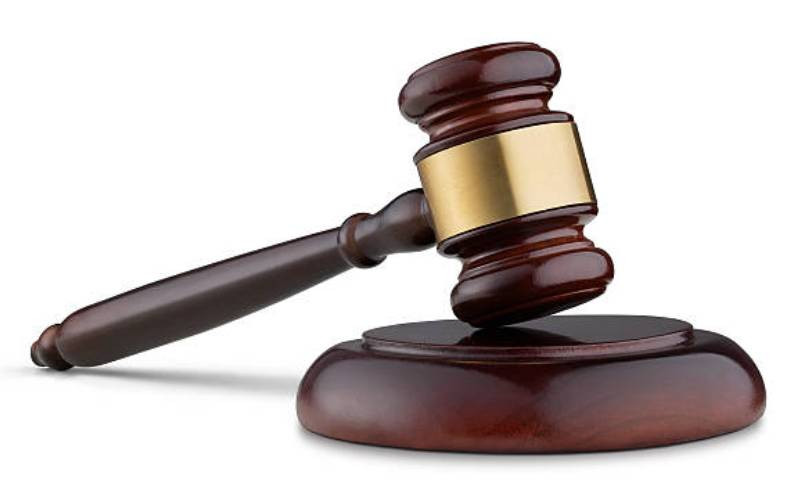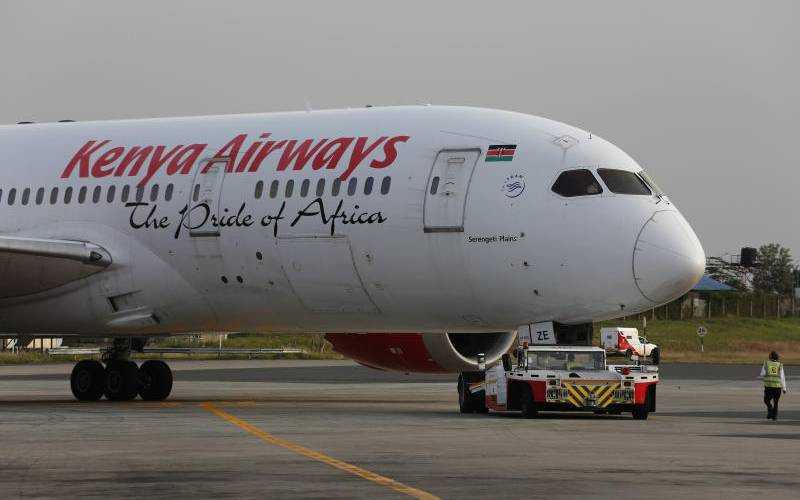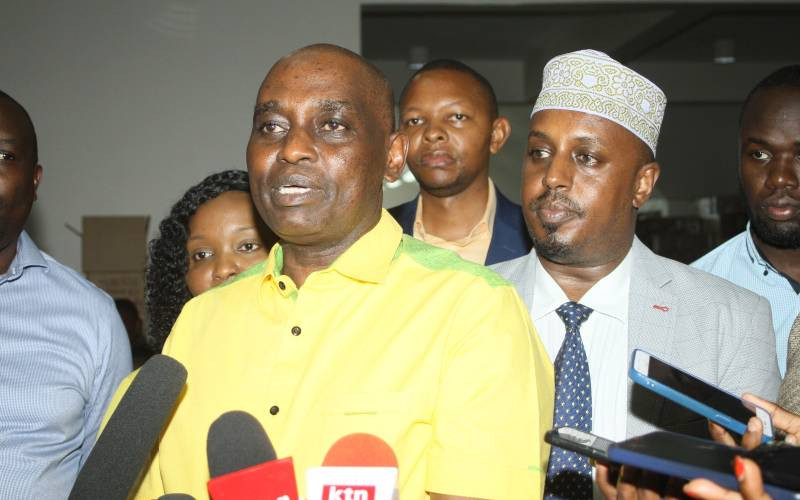
Sometimes in December 1985, the National Bank of Kenya invited bidders to tender for 95.2 acres of land in Nairobi.
The tenders were to reach NBK by December 18, 1985, at 12 noon.
Orbit Chemicals Limited was among those who floated their bids for what is commonly referred to as Mukuru kwa Njenga.
At the fall of the gavel, Orbit bought the property for Sh10 million. But when registration of the property was done on March 10, 1987, that is when Orbit’s problems started.
The company faced resistance from people claiming to be squatters on the parcel, and the dispute ended up in court where it dragged on for decades.
What the bank failed to disclose to the purchaser was that there were squatters on the property.
Justice Mary Kasango on March 11, 2020, said it seemed that the government-owned bank never intended to give Orbit its vacant possession.
It appeared, according to the judge, that NBK’s intention was to abandon Orbit with the burden of removing the squatters.
The battle, which has been in court for more than 36 years, has only been an expensive affair for the taxpayers due to the government’s blunders.
Sore thumb
It remains a sore thumb that refuses to go for Orbit despite several verdicts that the firm is the legit owner of the property in dispute.
A caveat placed on the property in 1989 by the registrar of titles had initially cost taxpayers Sh6 billion in a case filed by the company against the government.
Since then, it has been case after case, judgment after judgment all in favour of Orbit, with the latest being heard by Justice Edward Wabwoto and filed this year by Joram Kagimbi, Nelius Kariuki, Hotensiah Wanjiru, Peter Kimani, Zipporah Ndungu and Thomas Waruru.
Justice Wabwoto observed that in 2005, the High Court threw out a case filed by Amina Mohamed, James Kariuki Murage, Joseph Thiga Njoroge, Kassim Mohamed, Rachel Njoki Wainaina, Adan Alio, Joseph Manyasi, and Stephen Nzuki, seeking to block the eviction.
The Environment and Lands Court (ELC) Judge observed in his judgment dated August 15, 2023, the court had affirmed that the property belonged to Orbit and ordered that all the squatters should be evicted. Further, Justice Wabwoto observed that in yet another case, where Orbit had sued Attorney General in 2004, the court confirmed Orbit’s ownership.
Yet another case
At the same time, Justice Wabwoto said in yet another case filed by Zipporah Muthoni Ndungu, Gerald Gathaiya Ndungu, Peter Nyoro Kiarie, Belinda Teresiah Mumbi, David Mong’are and Ann Wesonga, the squatters were found to be illegal occupants.

The case was heard and determined by Justice Eric Obaga, who sealed the squatters fate in 2021. The six had sued on behalf of all squatters of Mukuru kwa Njenga.
In the case dismissed by Justice Wabwoto, the group led by Kagimbi told the court theirs was a different grievance as they were not part of the previous cases filed against Orbit.
They claimed that they bought the plots they live in from Kware Mukuru kwa Njenga Association between 2001 and 2009 and had already built multi-storey buildings.
However, the Judge found that there was no evidence to show that the Kware Mukuru kwa Njenga Association had powers to sell land it does not own.
The Judge told the petitioners to stop citing adverse possession as the basis of their entitlement to property.
“Having found that the issues herein have already been determined by several courts and that the suit herein is res judicata (already settled), this court shall proceed to strike out the same falling under such abuse of the court process,” ruled Justice Wabwoto.
Despite the court’s affirmation that Orbit owns the land, politicians have used the same to muddle the waters.
In one of the cases, former President Uhuru Kenyatta’s name was dragged into the matter. It was claimed in the case that Kenyatta ordered all squatters on the land be issued with titles.
The case had been filed by the slum’s residents and politician Irshad Sumra alongside 11 others.
They claimed that more than 26,000 residents have lived in the property since 1958 and as a result, they should not be evicted.
Contested property
The squatters argued that having occupied the contested property for over 40 years, they should be declared owners through adverse possession.
According to the residents, the High Court in a separate case had ordered that Orbit Chemicals be compensated and thereafter, the land allocated to Mukuru kwa Njenga squatters.
In the case, they also claimed that President Kenyatta in 2015 visited the area and ordered that all landless persons in the contested property should not leave; instead, they should be issued with titles or leases.
They asked the court to block any sub-division, selling, alienating, evicting, removing, demolishing or doing anything prejudicial to persons residing on the property.
However, the court found that the President has no powers to direct lands ministry or any other entity to issue titles or leases. He ruled that the property was private.
The judge observed that although they claimed there was a circular from the President, they did not produce it in court.
“Assuming that the circular alluded to, which has not been exhibited and/or annexed is to the effect that H.E Uhuru Kenyatta, decreed that all landless residents of Mukuru kwa Njenga be issued with title deeds or leases, then the question that arises is whether the President has any powers to direct issuance of title or leases and/or alienation of any land, let alone private land,” ruled Justice Oguttu Mboya. The judge noted that the 2018 case took too long to settle, as the residents delayed complying with court orders on filing their submissions.

He also declined to find that the residents owned the property through adverse possession. According to the judge, there was no evidence that they had lived in the property since 1958.
Supporting affidavit
“Nevertheless, the petitioners herein did not attach to the supporting affidavit any evidence or at all, to show that same are in occupation of the suit property.
“In this regard, the issue of occupation of the suit property by the petitioners was therefore left for the court to speculate upon same with a view to finding and holding in favour of the petitioners,” he said.
The residents were also opposed to the government’s plan to construct Catherine Ndereba Road through the slum. They claimed that they were not consulted and were not involved in the design process.
However, Kenya Urban Roads Authority (KURA) disputed the claim arguing that when it was carrying out a feasibility and impact assessment of the intended road, a number of residents were involved.
According to the agency, the intended road was critical as it would open up the slum.
Justice Mboya found that the road should be built on public land and not on the property.
Orbit also opposed the case. The firm’s representative Sachen Chandaria told the court that Orbit had bought the property from bank through public auction.
Chandaria asserted that Orbit has a right to develop the property adding that the firm sued Attorney General ( in 2004 over a caveat, which had been placed on the same property.
According to Chandaria, the court went ahead in 2012 and ordered the AG to pay Sh6 billion for loss of income. He said that although the firm won, the government has never obeyed the court orders.
 The Standard Group Plc is a multi-media organization with investments in media platforms spanning newspaper print
operations, television, radio broadcasting, digital and online services. The Standard Group is recognized as a
leading multi-media house in Kenya with a key influence in matters of national and international interest.
The Standard Group Plc is a multi-media organization with investments in media platforms spanning newspaper print
operations, television, radio broadcasting, digital and online services. The Standard Group is recognized as a
leading multi-media house in Kenya with a key influence in matters of national and international interest.











